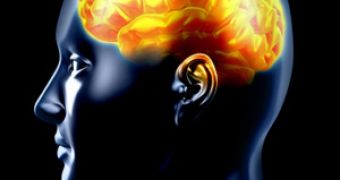Experiments carried out on rats have shown that short-lived stress does nothing to harm an individual's brain. Quite the contrary: it boosts brain performance and helps the individual keep alert.
This series of experiments, whose findings were detailed in a study published in the journal eLife on April 16, consisted in making the animals go through several stressful events that only lasted for a short while.
While the animals were made to experience these brief stressful events, the researchers kept a close eye on what was happening inside their brains.
Thus, they noticed that the acute stress these rats were purposely subjected to triggered transformations in the stem cells located in the animals' brains.
As explained on the official website for the University of Berkeley, the stress caused the stem cells to turn into new nerve cells.
In about two weeks' time, when these new nerve cells reached their maturity, the researchers discovered that the rats' mental performance had improved to a noteworthy extent.
Commenting on these experiments, researcher Daniela Kaufer made the following observations:
“In terms of survival, the nerve cell proliferation doesn’t help you immediately after the stress, because it takes time for the cells to become mature, functioning neurons.”
“But in the natural environment, where acute stress happens on a regular basis, it will keep the animal more alert, more attuned to the environment and to what actually is a threat or not a threat.”
Unlike chronic stress, which more often than not proves detrimental to one's health, acute stress appears to benefit the brain by boosting mental performance and paving the way to better adaptation skills.
“I think the ultimate message is an optimistic one. Stress can be something that makes you better, but it is a question of how much, how long and how you interpret or perceive it,” specialist Bruce McEwen, who was not involved in these experiments, summed up the findings of this research.

 14 DAY TRIAL //
14 DAY TRIAL //